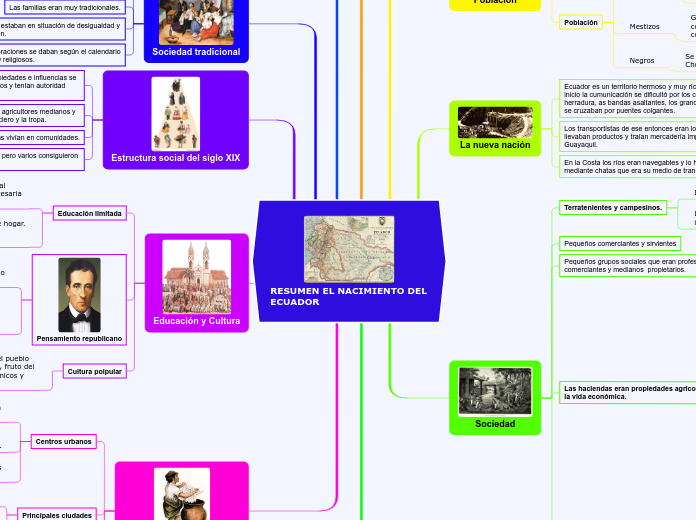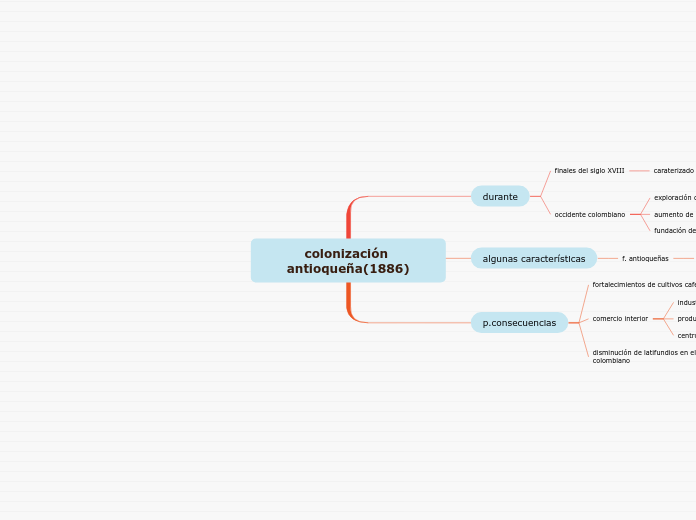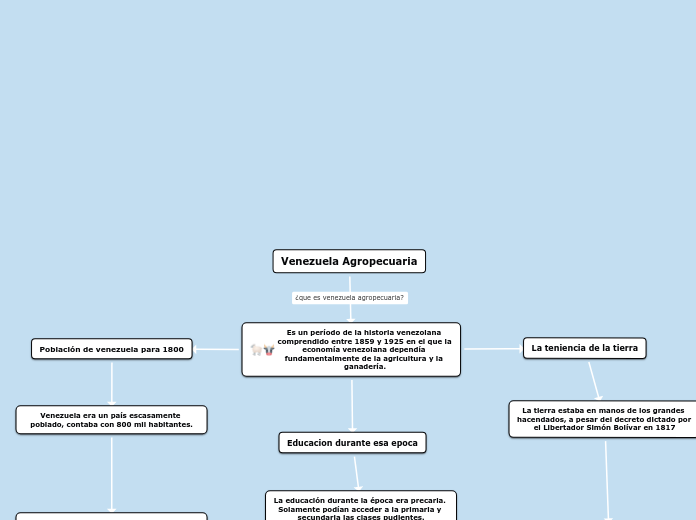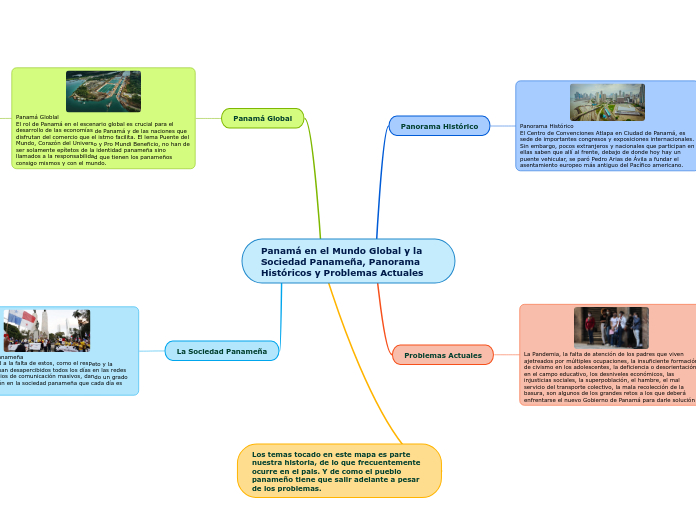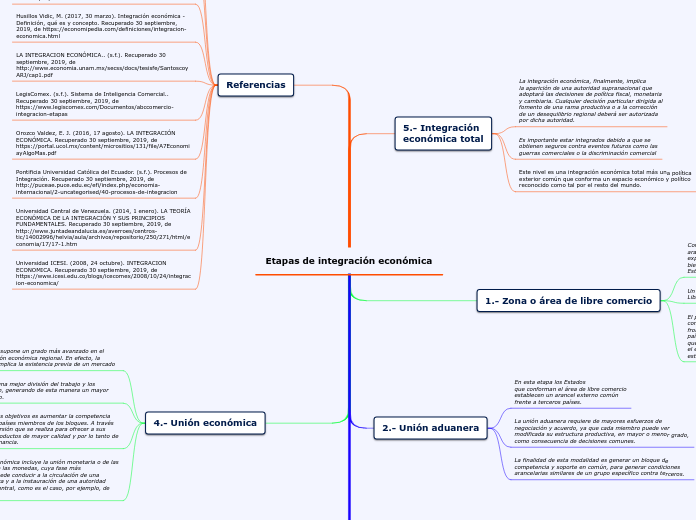Datos informativos
Código: 2122731
Nombre: Mayra Acosta
RESUMEN EL NACIMIENTO DEL ECUADOR
The part of speech is a category to which a word is assigned according to its syntactic functions. In English the main parts of speech are noun, pronoun, adjective, determiner, verb, adverb, preposition, conjunction, and interjection.
Las ciudades y el comercio
A conjunction is a word like 'if' 'but' or 'and' which is used to connect sentences or clauses together.
Manufacturas
La producción textil tuvo gran importancia, los obrajes fueron sustituidos por fábricas con maquinaria moderna importada de Europa.
Comercio
Se mantuvo el intercambio Costa-Sierra de la Costa se enviaba artículos importados y de la Sierra se llevaban a la Costa textiles, cueros, legumbres y cereales.
Principales ciudades
Subordinating conjunctions are conjunctions that are used at the beginning of subordinate clauses. Some examples of these conjunctions are: although, after, before, because, how, if, once, since, so that, until, unless, when etc.
Guayaquil
Se encuentra el puerto más importante del Ecuador.
Quito
Era la ciudad más grande del país.
Centros urbanos
Coordinating conjunctions always connect phrases, words, and clauses. They are: for, and, nor, but, or, yet, so.
Las comunidades indígenas realizaban servicios de reparto de agua y recolección de basura.
En las ciudades, las campanas de las iglesias marcaban el ritmo de la vida.
En el centro de la ciudad se ubica la plaza principal.
Educación y Cultura
A preposition is one of the most exciting parts of grammar. A preposition is used to describe the location of something in relation to something else.
Cultura polpular
When a preposition consists of more than one word, it is called double preposition.
Tuvo mucha fuerza en los sectores del pueblo se profundizó una conciencia mestiza, fruto del encuentro de rasgos indígenas, hispánicos y afroamericanos.
Pensamiento republicano
Compound preposition consists of two or more words.
La obra más importante fue el Canto a Junín de José Joaquín de Olmedo, uno de los grandes pensadores de la Independencia y la fundación del Ecuador.
Las ideas republicanas iban triunfando aunque no evitó las dictaduras.
Educación limitada
When a preposition consists of one word it is called single or simple preposition.
Las mujeres se preparaban para la vida de hogar. Muchas aprendían a ser costureras o trabajadoras domésticas.
Los hombres se dedicaban desde jóvenes al trabajo y recibían solo la capacitación necesaria para labores artesanales o agrícolas.
Estructura social del siglo XIX
An interjection is used to express emotion in a sentence.
Think of other interjections!
Los negros eran esclavos, pero varios consiguieron su libertad.
Los indígenas vivían en comunidades.
Los artesanos, comerciantes y agricultores medianos y pequeños, miembros del bajo clero y la tropa.
Los que tenían propiedades e influencias se consideraban blancos y tenían autoridad política.
Sociedad tradicional
An adverb is used to describe a verb, but it can also describe an adjective or another adverb.
Adverbs normally help paint a fuller picture by describing how something happens.
Las celebraciones se daban según el calendario
agrícola y religiosos.
Las mujeres estaban en situación de desigualdad y subordinación.
Las familias eran muy tradicionales.
La familia se educaba y formaba para el trabajo.
Ecuador en el mundo
A numeral is a word or phrase that describes a numerical quantity.
Some theories of grammar use the word 'numeral' to refer to cardinal numbers that act as a determiner to specify the quantity of a noun, for example the 'two' in 'two hats'.
Con el incremento de las exportaciones crecieron Guayaquil y la Costa. Los grupos dedicados al comercio exterior se volvieron más poderosos, y tuvieron más tensiones con los latifundistas tradicionales.
La exportación de cacao creció rápido. Ecuador llegó a ser el mayor exportador de la fruta en el mundo a fines del siglo XIX.
Regionalización
An article is a word used to modify a noun, which is a person, place, object, or idea. Technically, an article is an adjective, which is any word that modifies a noun.
El nombre de Ecuador
Ecuador se fundó oficialmente en agosto de 1830 y su nombre se debe a los sabios franceses que visitaron el país un siglo antes.
La regionalización se ha mantenido, con modificaciones y ampliaciones, hasta el presente.
Buena parte de las tierras de la Costa estaban todavía cubiertas de bosques tropicales, donde vivían pueblos indígenas.
Guayas y Manabí
Sierra sur
Indefinite articles are the words 'a' and 'an.' Each of these articles is used to refer to a noun, but the noun being referred to is not a specific person, place, object, or idea. It can be any noun from a group of nouns.
La concentración de tierras era menor que en el norte, el intercambio más activo era con Guayaquil y Perú.
Cañar, Azual y Loja.
Sierra centro-norte
It refers directly to a specific noun or groups of nouns.
Eran tierras altas, con valles de clima templado, predominaban las grandes haciendas.
Imbabura, Pichincha y Chimborazo.
Sociedad
A pronoun is a word that can be used in place of a noun, typically after the noun itself has already been stated.
Artesanos
Unlike demonstrative pronouns, which point out specific items, indefinite pronouns are used for non-specific things. This is the largest group of pronouns. All, some, any, several, anyone, nobody, each, both, few, either, none, one, and no one are the most common.
Auge de los artesanos
Tenían gran influencia en la vida social y política local.
Los Gremios
Los gremios artesanales agrupaban a los maestros para labores de enseñanza de los oficios.
Producían ropa, zapatos, joyas, cerrajería, monturas, cuerdas y otras manufacturas.
Las haciendas eran propiedades agrícolas, ejes de la vida económica.
Relative pronouns are used to add more information to a sentence. Which, that, who (including whom and whose), and where are all relative pronouns.
Habían pequeños y medianos propietarios agrícolas mestizos, mulatos y negros libres, que producían para el mercado interno.
Sierra
Los campesinos tenían relaciones precarias con sus patrones,
Criaban vacas y ovejas con las que producían leche, lana y cueros. En los obrajes se fabricaban telas.
Se producían granos, hortalizas, caña y aguardiente.
Costa
En varios lugares se mantenía la esclavitud de los negros.
Cultivaban tabaco, cacao y otros productos.
Las familias ricas tenían haciendas.
Pequeños grupos sociales que eran profesionales, comerciantes y medianos propietarios.
Interrogative pronouns are used in questions. Although they are classified as pronouns, it is not easy to see how they replace nouns. Who, which, what, where, and how are all interrogative pronouns.
Pequeños comerciantes y sirvientes
Reciprocal pronouns are used for actions or feelings that are reciprocated. The reciprocal pronouns are each other and one another.
Terratenientes y campesinos.
A reflexive pronoun ends with ...self or ...selves and refers to another noun or pronoun in the sentence (usually the subject of the sentence). The reflexive pronouns are myself, yourself, herself, himself, itself, ourselves, yourselves, and themselves.
La gran mayoría de la población estaba integrada por campesinos.
Dominaban los grandes señores de la tierra.
La nueva nación
An adjective is a word that's used to describe a specific noun and to provide more detail to the listener.
En la Costa los ríos eran navegables y lo hacían mediante chatas que era su medio de transporte.
Los transportistas de ese entonces eran los arrieros que llevaban productos y traían mercadería importada de Guayaquil.
Ecuador es un territorio hermoso y muy rico, pero al inicio la cumunicación se dificultó por los caminos de herradura, as bandas asaltantes, los grandes rios que se cruzaban por puentes colgantes.
Expresses a comparison between two entities or groups of entities in quality or degree.
Población
A noun is defined as a person, place, thing or idea. Proper nouns always begin with a capital letter. Common nouns, which are general words, such as 'cars,' are not capitalized.
Proper nouns are the names of specific people or places. They should always begin with a capital letter.
Negros
Se encontraban en Esmeraldas y el Valle del Chota, algunos aún eran esclavos.
Mestizos
Gran parte de los habitantes eran mestizos y se consideraban blancos, con el paso del tiempo se convirtieron en la mayoría de la población.
Indígenas
La mayoría se asentó en la Sierra, en la Costa existían algunas comunidades y en el Oriente estaban indígenas y pocos colonos.
Población en la Gran Colombia
558.364 habitantes en aumento con mayor incremente en la Costa.
Habitantes de la Real Audiencia de Quito
424.037 distribuidos en:
Oriente 3.511
Sierra 389.990
Costa 30.506
Territorio
A verb is an action word or 'doing' word that signifies movement in some way.
Ocupación
An auxiliary verb helps the main (full) verb and is also called a 'helping verb.' With auxiliary verbs, you can write sentences in different tenses, moods, or voices.
El territorio ecuatoriano fue muy limitado, hasta quedarse con una pequeña parte del Oriente.
Los conflictos por sus fronteras trajo consigo desacuerdos y guerras con Nueva Granada (Colombia) y Perú.
Aspectos Históricos Geográficos
A participle is a verb form that can be used as an adjective or to create a verb tense. There are two types of participles: Present participle (ending -ing) and Past participle (usually ending -ed, -d, -t, -en, or -n).
Las Islas Galápagos se incorporarón al Ecuador en 1832.
Se incorporaron a la Gran Colombia y su territorio estaba conformado por las tres regiones Costa, Sierra y Oriente.
Tras la conquista formaron parte de la Real Audiencia de Quito.
Se fundó en territorios indígenas en el Tahuantinsuyo.
